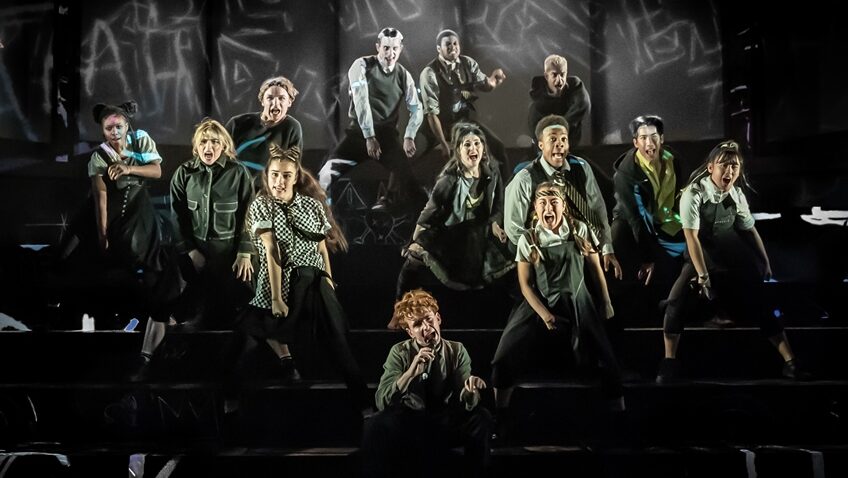Frank Wedekind (1864-1918) wrote Spring Awakening during 1890/91 and it is one of the definitive statements on adolescence. He writes about the guilt and the shame of young adults trying to come to terms with their sexuality. The action is set in a rigid repressive bourgeois society and is an attack on the ignorance, hypocrisy and tyranny of parents and teachers.
It premiered in 1906 in Berlin in a cut version, directed by Max Reinhardt. It was not performed in its entirety until 1912, which was not surprising, given that the text included flagellation, eroticism, communal masturbation, homosexual love, abortion and suicide.
The play was first seen in England for one night only in 1931 when it was produced by a Sunday Theatre Club for its members. In 1963 The English Stage Company invited the Lord Chamberlain to see a private Sunday performance at the Royal Court. He agreed to license the play in 1965 if the masturbation was omitted and so long as the boys did not kiss, embrace and caress each other.
Wedekind has had a number of revivals since then; and none of them really successful. The American rock musical version by Steven Sater and Duncan Sheik, which premiered in 2006, was meant to be a one-off; instead, it ran for two years in New York and picked up Awards. It did not do so well in London in 2009.

It is this American musical which Rupert Goold is reviving at the Almeida and, not as you might expect, the expressionistic Wedekind play. The action is acted out on a darkened stage, lit by Jack Knowles, and filled entirely with a steep flight of steps which become graffiti-ridden. The production is notable for the physical energy and the inventiveness of the choreography by Lynne Page.
Melchior (Laurie Kynaston), the most articulate and rebellious of the boys, is packed off to a reformatory school. His crime is to write a letter to his best friend in which he describes the sexual act with explicit drawings.
His friend, Moritz (a role once played by Peter Lorre in Germany in 1929 and now played by Stuart Thompson) finds the pressures of puberty and examinations so great he shoots himself.
The most disturbing scene is when the very innocent Wendla (Amara Keraka) begs Melchior to beat her backside with a cane. When she gets pregnant, her mother, who had been too embarrassed to tell her the facts of life, insists she has an abortion and she dies.
The musical is aimed at young audiences who go to rock concerts rather than at theatergoers who might want to see Wedekind’s infinitely superior quasi-realistic play which mixes caricature, poetry and fantasy. The show-stopping number is the one with which they can most easily identify and it is called “You’re f***ed!”
To learn more about Robert Tanitch and his reviews, click here to go to his website 




